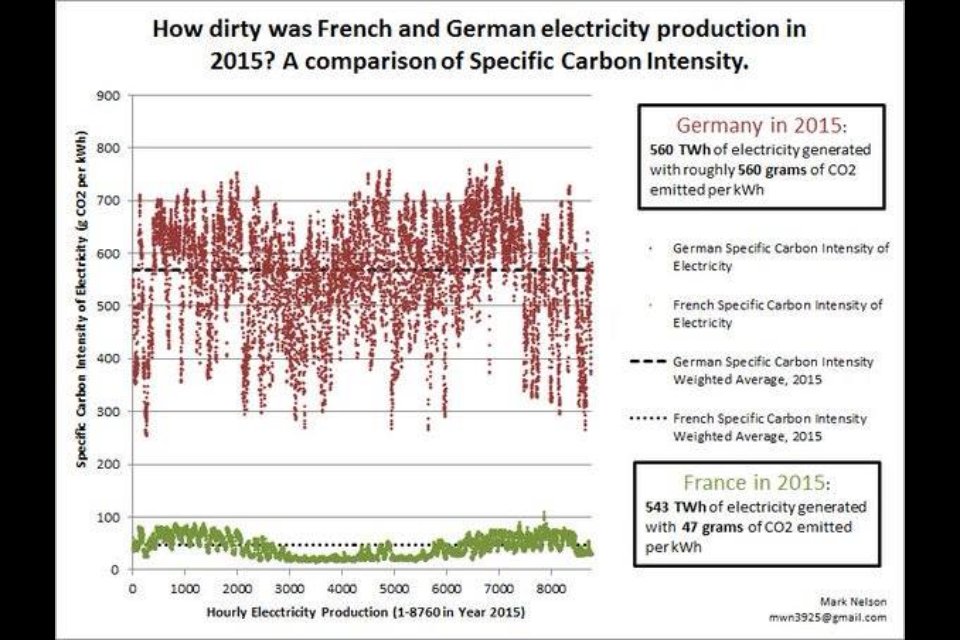Lot of people won’t like this post, but some of the smartest people I know have been saying for decades that a solution to climate change means nuclear energy. The numbers cannot, and will not, work without it.
The below info-graphic shows why:

The problem with nuclear energy is the problem with everything in our society.
Running it requires competent, risk-adverse individuals who takes its dangers seriously. It’s not that these dangers can’t be managed, it is certainly not that we can’t design better and safer reactors than we have now, it is that our elites do not care about the future. They are rational, utility-maximizers in the short run, who believe that investing to prevent disaster or catastrophe is foolish. Any catastrophe can be managed or survived. Katrina happened, life went on. Indeed, Katrina was a brilliant opportunity to introduce charter schools to New Orleans.
The financial disaster happened, and the people who caused it came out richer and more powerful, as a group. Fukushima happened, and, well, we’re all alive, thanks.
The long lesson our elites have learned over the past 40 years is that nothing can go so wrong it can’t be recovered from and that most catastrophes and crises are just opportunities to make even more money. There is no reason to invest in preventing crises when higher returns await elsewhere and when catastrophes are beneficial to our leaders.
As such, we cannot, overall, be expected to run something like nuclear energy properly.
Or financial markets.
But, if we really wanted to mitigate climate change, what we would really need to do is figure out how to run nuclear energy safely–including handling shutting down plants, dealing with waste, and running them safely. That would mean a significant framework/infrastructure redesign.
But it would also mean a change in our culture and society, a change to a society capable of managing risk, and we would have to be given some reason to believe that change would be relatively long-lasting: At least as long as the life-cycle of the nuclear plants.
Nuclear energy would be used as a transition energy source, needed for a generation or two, as we move to better sources. But generational cycles, and our own recent history, indicate that expecting our social structure to stay sane for as long as the life-cycle of nuclear plants isn’t a safe bet.
As usual, technical problems are subordinate to cultural and social issues.
If you enjoyed this article, and want me to write more, please DONATE or SUBSCRIBE.
